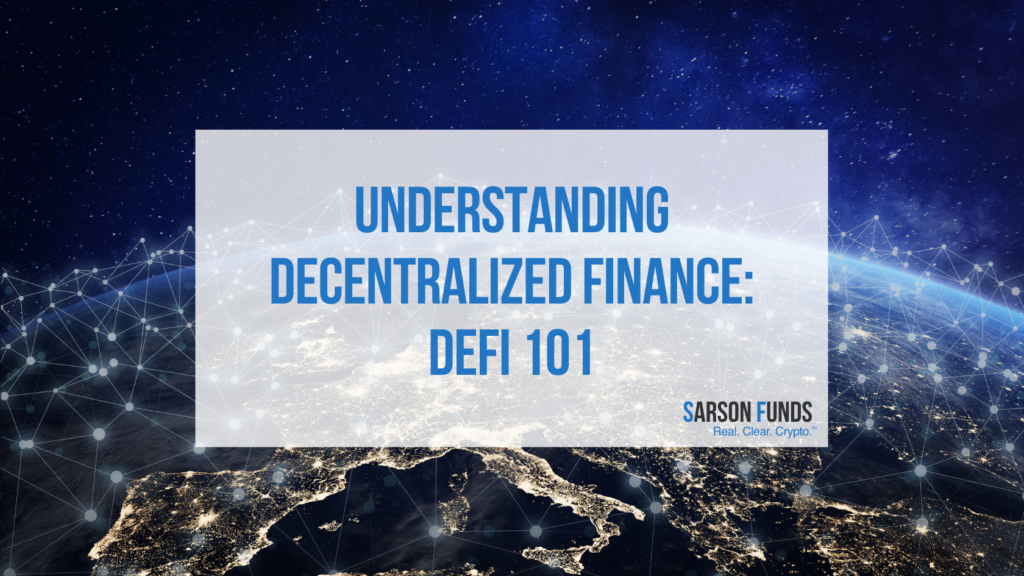What is DeFi? A Beginner’s Guide to Decentralized Finance invites you to explore the revolutionary world of decentralized finance. This emerging sector is transforming how we think about money, banking, and transactions by removing intermediaries and empowering individuals. Through blockchain technology, DeFi offers innovative solutions that promote transparency, accessibility, and inclusivity, making financial services available to everyone, regardless of their background.
The landscape of DeFi is rich with opportunities and challenges, as it encompasses a variety of platforms and protocols designed to facilitate everything from lending and borrowing to trading and investing, all without reliance on traditional financial institutions. This guide aims to demystify the core concepts of DeFi, enabling you to understand its potential impact on the future of finance.
In the modern age, where technology permeates every aspect of our lives, digital literacy has become an essential skill for individuals of all ages. Digital literacy refers to the ability to effectively and critically navigate, evaluate, and create information using a range of digital technologies. This skill is not just about knowing how to use devices like smartphones and computers; it’s about understanding the implications of technology in our society and empowering oneself through knowledge.
The Rise of Technology
Over the past two decades, the rapid advancement of technology has reshaped the way we communicate, work, learn, and interact with the world. From the advent of the internet to the proliferation of smartphones, technology has transformed our daily lives. In this context, being digitally literate is akin to possessing a new form of literacy. Just as reading and writing were once essential skills in the past, digital literacy is fundamental in a tech-driven world.
Why Digital Literacy Matters
First and foremost, digital literacy enhances individuals’ ability to access information. The internet is a vast repository of knowledge, and the ability to sift through vast amounts of data is crucial. For students, digital literacy is particularly important as it allows them to conduct research efficiently, discern credible sources, and engage with diverse perspectives. In a world rife with misinformation, critical thinking and the ability to evaluate online content are vital skills that every individual should develop.
Moreover, in the workplace, digital literacy is often a prerequisite for employment. Employers increasingly seek candidates who are not only proficient in technical skills but also adept at using digital tools to enhance productivity and collaboration. From basic tasks like sending emails to more complex responsibilities such as managing databases or utilizing project management software, digital literacy is integral to a modern workforce.
Promoting Digital Literacy in Education
Recognizing the importance of digital literacy, many educational institutions have begun to integrate technology into their curricula. This includes teaching students how to use various software applications, understanding online safety and privacy, and promoting the responsible use of social media. Schools are also encouraging students to develop problem-solving skills through coding and other technical subjects.
However, the responsibility of promoting digital literacy does not rest solely on educational institutions. Parents and guardians play a crucial role in fostering these skills at home. Encouraging children to explore technology while setting boundaries and emphasizing the importance of online safety can create a balanced approach to digital literacy.
Challenges to Digital Literacy
Despite its importance, there are significant challenges to achieving widespread digital literacy. One of the most pressing issues is the digital divide—the gap between those who have easy access to technology and those who do not. This divide can be due to socioeconomic factors, geographic location, or even age. For instance, many rural areas lack the high-speed internet access that urban centers enjoy, making it more difficult for residents to engage fully in the digital world.

Additionally, there is the challenge of keeping pace with rapidly changing technology. New tools and platforms emerge almost daily, and keeping up can be overwhelming. Continuous education and training are necessary to ensure that individuals remain competent in their digital skills and that they can adapt to new technologies as they arise.
Conclusion: What Is DeFi? A Beginner’s Guide To Decentralized Finance
In conclusion, digital literacy is no longer a luxury; it is a necessity in today’s technology-driven society. It empowers individuals to access information, enhances employability, and promotes responsible citizenship in an increasingly digital world. As we move forward, it is imperative that we invest in efforts to improve digital literacy across all age groups and demographics. By doing so, we not only equip ourselves for success but also contribute to a more informed, connected, and equitable society.

